|
|
|
Focus On: Veterinary Access
August 2024
|
|
|
|
|
|
|
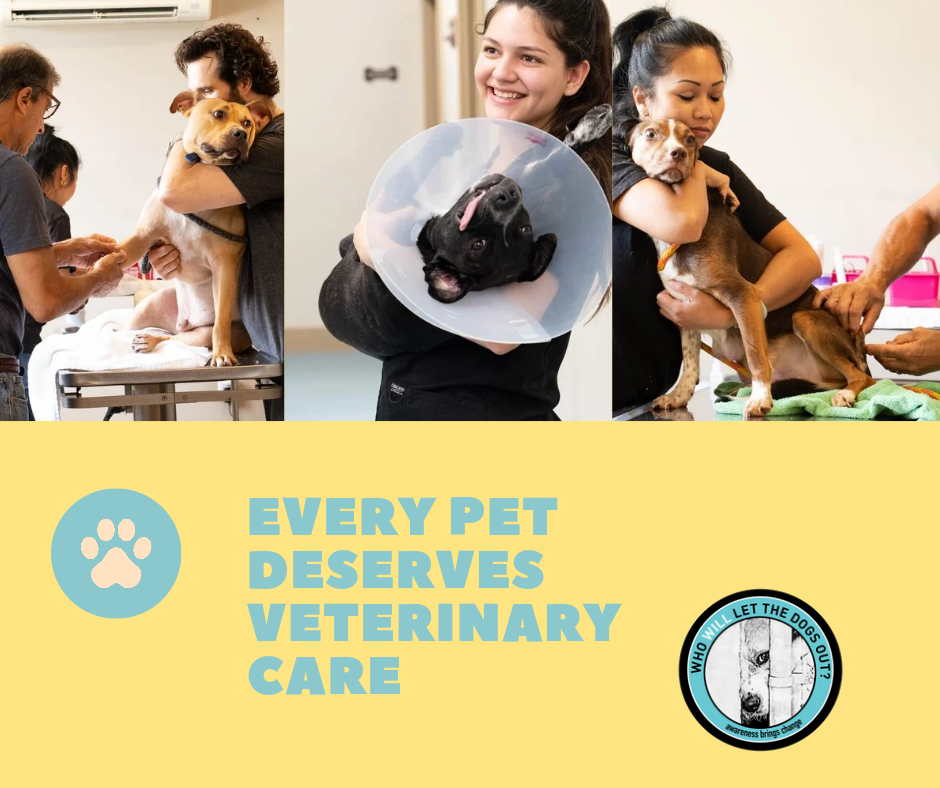
|
|
August Co-Founder's Note:
|
Focus On: Veterinary Access
Without available, affordable veterinary access, a shelter struggles to save dogs and is rarely able to move dogs out quickly. The veterinary shortage has taken its toll and vets who do agree to do shelter work can become overwhelmed by the need. Heartworm should not be a death sentence, and shortage of spay/neuter surgery slots should not mean a dog stays in a shelter for months.
|
|
We need to get creative in finding ways to give our animals the care they need. Here are a few ideas for accessing veterinary care for shelter/rescue animals:
|
|
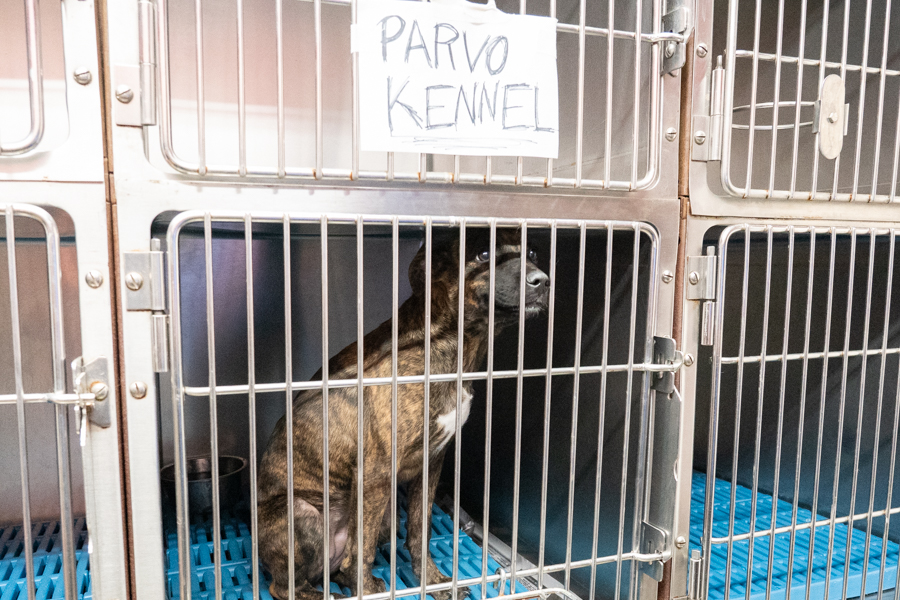
|
|
1 – Partner with a Community College Vet tech program. Huntington-Cabell-Wayne shelter actually built a classroom for their local college’s vet tech program, so the students come to the shelter to learn and to practice.
|
|
2 – Consider bringing veterinary care in-house. Several shelters we have visited have in-house clinics that not only care for their animals, but also for the public. They charge reasonable rates and those fees help pay for the shelter’s animals veterinary needs. It’s not as complicated as you think—crunch the numbers on retrofitting a space into a vet clinic and hiring part-time vets (many retired vets are willing to do shelter work – fewer hours and less dealing with pet owners).
|
|
3 – Connect with a veterinary college. If there is a vet school within 4 hours of your shelter, they just might be willing to send students for occasional clinic days.
|
|
4 – Do as much vet work yourself as you can. If your staff isn’t already vaccinating (for distemper and Bordetella), deworming, microchipping, and testing for heartworm, train them to do so.
|
|
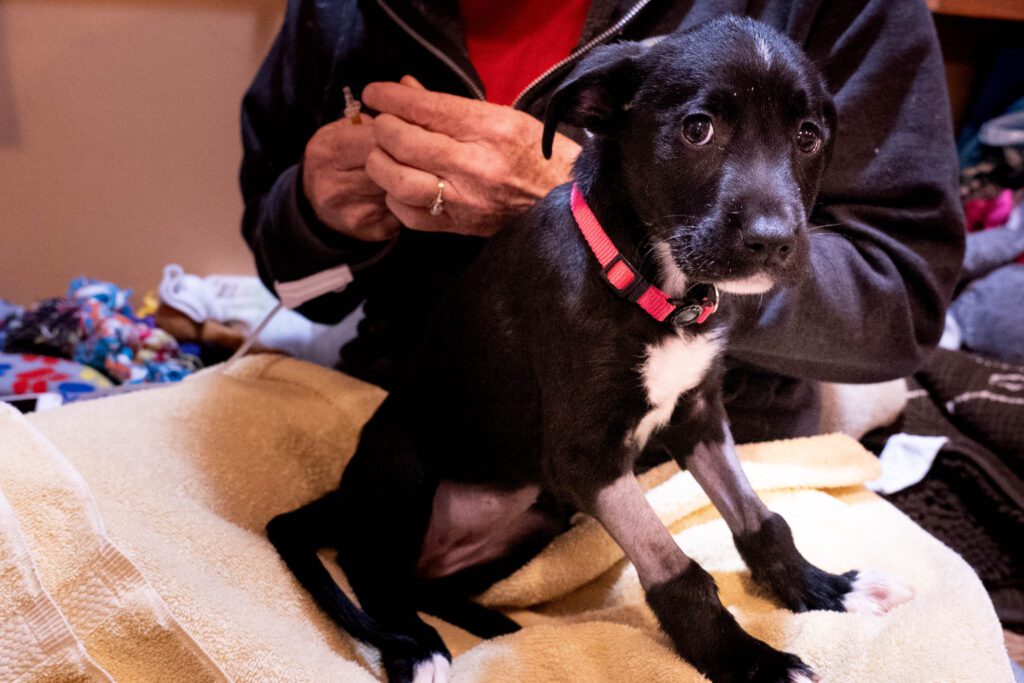
|
5 – Start a ‘Spay-it-forward’ program and invite adopters to include a donation to spay
another animal with their adoption fee. Often people are more willing to give when
they know exactly what it is going toward. You might even send them a thank you
with the pawprint of a dog who was spayed/neutered as a result of their donation.
6 – Cut supply costs by joining a buying cooperative (Shelters United is one) or by ordering in bulk overseas. Heartworm preventative, flea/tick preventatives, and other supplies are often cheaper purchased elsewhere. It just takes some planning ahead.
|
|
7 – Use Amazon wish lists. Add supplies like syringes/needles/dewormers/over-the-counter meds to your Amazon wish list and post the list permanently on your Facebook page and website, but also post it periodically with a request for specific items. Tell people what you need – they are more likely to meet it.
|
|
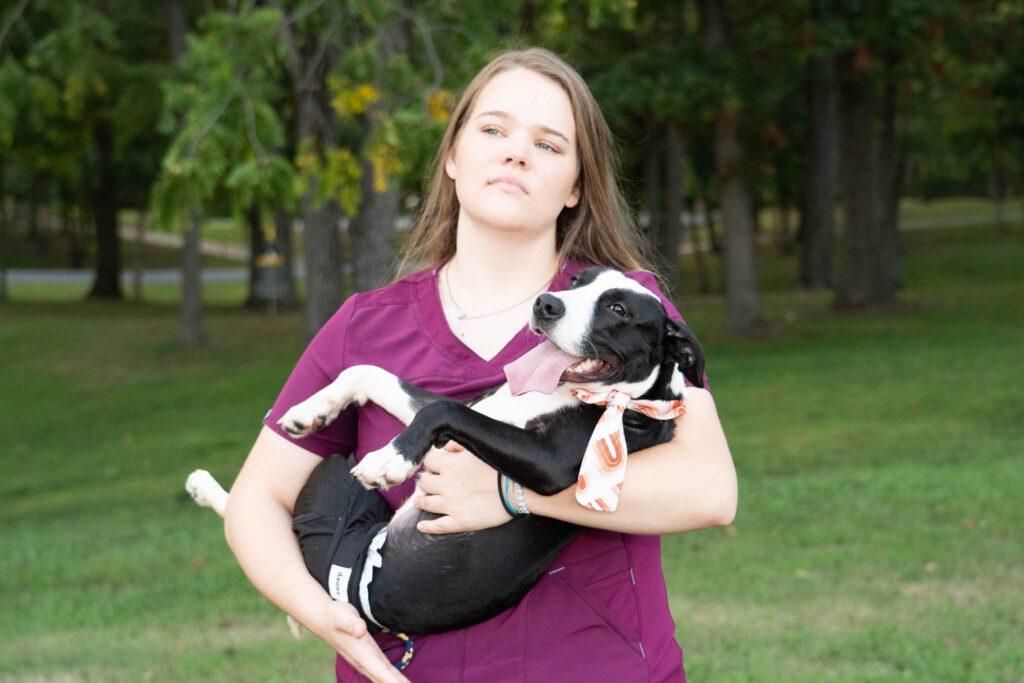
|
|
We need to look for solutions rather than lamenting the situation. As one of my kids says, “It is what it is.” Instead of putting your energy toward the problem, focus it on finding solutions.
|
|
|
|
|
Until Each One Has A Home,
Cara Achterberg
|
|
|
|
|
CALL FOR IN-KIND DONATIONS
|
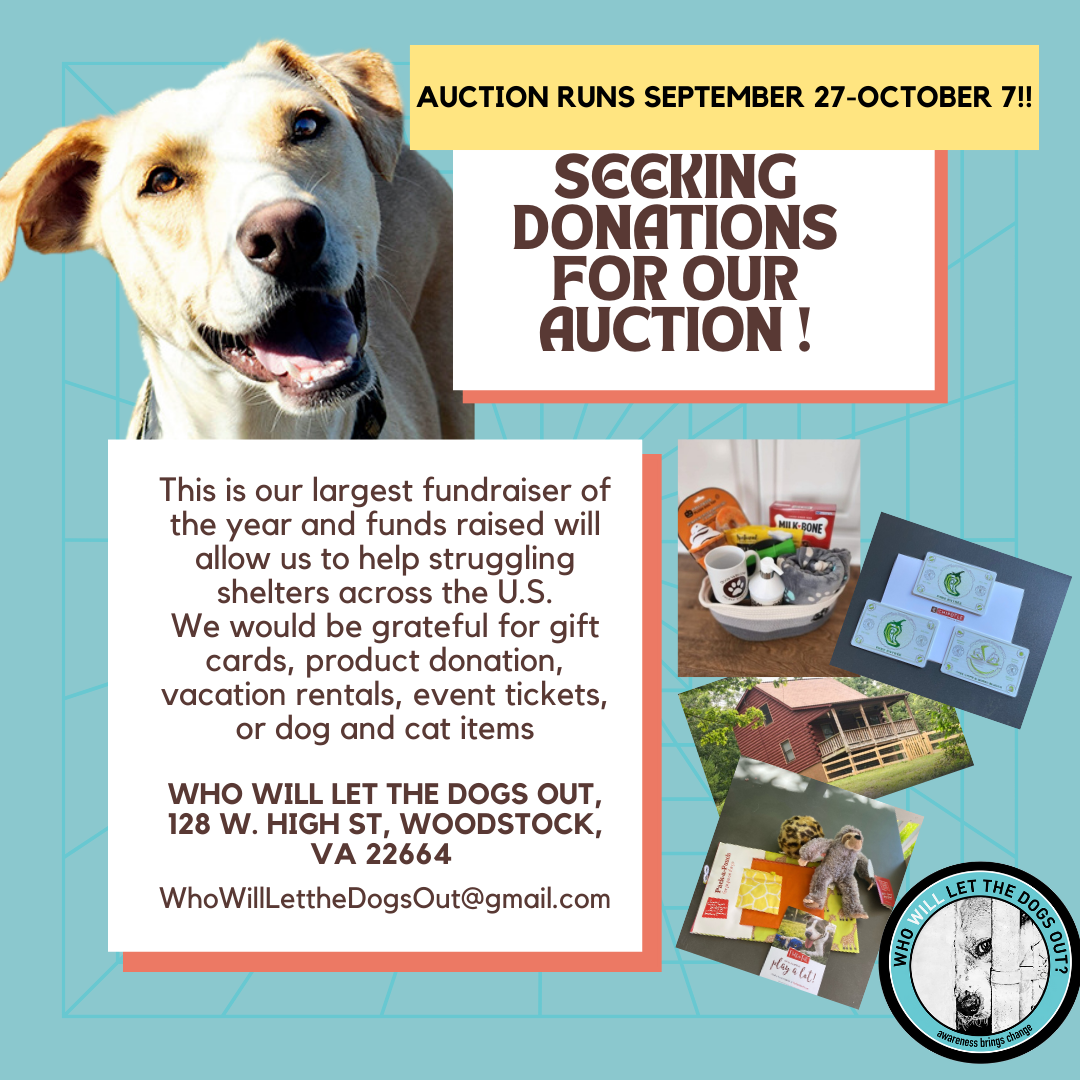
|
Our Annual Fall Auction is slated for
September 27 – October 7, 2024.
As a completely volunteer-run and donation-based organization, we rely on out Annual Auction to provide tangible help to our partner shelters. We use our instagrants exclusively for investments in items with long-term benefits like kuranda beds, providing new, larger kennels, and improvements to the shelter itself, like repouring concrete floors to prevent worms and parvo. This cornerstone of our programing requires in-kind donations from the community in order to fundraise.
|
|
Know an organization that would like to support us?
|
|
|
|
|
|
|
|
An Inspiring Story: Bringing Change in Meade County Kentucky
|
|
|
|
We see a lot of hard situations on shelter tours, but sometimes what we see is flat-out inspiring. That was the case with Meade County Animal Shelter, a small municipal shelter in rural Brandenburg, Kentucky. They are proving that with leadership, community engagement, and veterinary access you can turn a kill shelter into one that is saving all the adoptable …
|
|
|
|
|
|
|
|
WWLDO Volunteer Corner
|
Virtual Volunteer Opportunities
|
|
|
|
WWLDO is looking for a new Volunteer Coordinator! This role is responsible for responding to volunteer applications and onboarding new volunteers. This includes assigning shelter liaisons and connecting new volunteers in other areas with the people and information they'll need. The Volunteer Coordinator is also a point of contact for questions and suggestions, and may serve on the Advisory Board. If interested, please reach out to our Volunteer Coordinator Laura May at laura@wwldo.org.
|
|
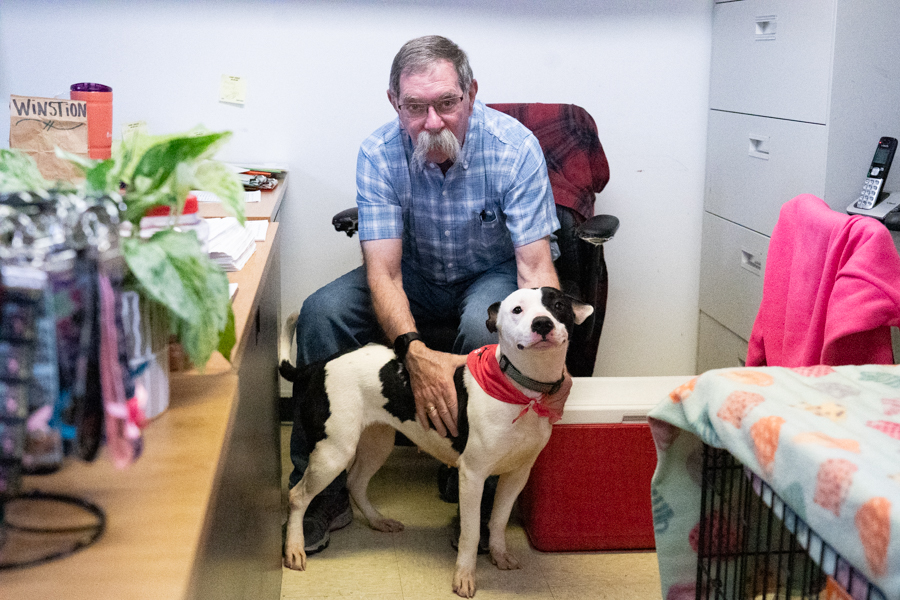
|
|
Resource Guide Copy Editor
|
|
The WWLDO Resource Guide has grown significantly over the last year and is one of the most visited sections of the website. We are in need of a Copy Editor, who will be responsible for editing and proofreading Resource Guide content. If interested, please reach out to our Volunteer Coordinator Laura May at laura@wwldo.org.
|
|
|
Would you like to help raise awareness and resources for homeless dogs and the heroes who champion their cause? As a Shelter Liaison you can make a difference from the comfort of your own home. Shelter Liaisons play a crucial role in virtually supporting our shelter partners. As a Shelter Liaison, you will be monitoring our shelter partners' posts on social media and sharing their news, ideas, and needs. If interested, please reach out to our Volunteer Coordinator Laura May at laura@wwldo.org.
|
|
|
|
|
|
|
|
From the Resource Guide
|
For struggling, overcrowded and underfunded rural shelters, access to veterinary care is just one more huge challenge to overcome. Many nonprofit organizations work to either provide veterinary care to homeless animals or assist pet owners in paying vet bills so that their animal companions don’t end up in the shelter. Here are some examples:
|
The Bissell Pet Foundation
The Bissell Pet Foundation (BPF) is a national animal welfare organization dedicated to ending pet homelessness. The foundation partners with over 6,000 animal welfare organizations nationwide. Through the BPF Fix the Future initiative, a network of veterinarians licensed in more than a dozen states are deployed to underserved communities where veterinary access is limited and shelters are overcrowded. These veterinarians split their time between spaying and neutering shelter pets to prepare them for adoption and providing low-cost or no-cost spay/neuter services for pet owners in the community.
|
In 2021, BPF launched the Healing Heartworm program to save the lives of pets infected with heartworm and to help prevent more dogs from contracting the disease. The Healing Heartworm program is helping combat this disease by:
|
- Providing funding to treat heartworm-positive dogs to destination shelters taking in pets from BPF’s transport operations.
- Awarding Healing Heartworm grants to support shelters committed to transporting and treating heartworm-positive dogs from southern shelter partners in need.
- Distributing thousands of doses of heartworm preventative medicine to stop future heartworm from occurring.
To participate in BPF programs, shelters must first join the foundation’s Partners for Pets program.
|
Emancipet
The mission of Emancipet is to make veterinary care affordable and accessible for everyone. The nonprofit manages an expanding national network of low-cost clinics specializing in spay and neuter surgeries, vaccinations, and microchipping. Emancipet also offers low-cost, comprehensive heartworm treatment for dogs at select locations. In addition, Emancipet offers customized training and consulting programs to animal welfare organizations nationwide and advocates for strategies and public policy that improve the lives of pets in underserved communities. For more information, call 866-441-9248 or email contact@emancipet.org.
|
The Jason Debus Heigl Foundation
The Jason Debus Heigl Foundation launched the Namaste Spay & Neuter Initiative to help combat the pet overpopulation problem. Through this program, the foundation partners with qualifying 501(c)(3) groups to fully fund the cost of spay and neuter surgeries, including associated pain medication and any necessary vaccinations. On Namaste Days, pet owners bring their cats or dogs to pre-approved host clinics for free surgery. Shelters can apply online to organize a Namaste Spay and Neuter Clinic.
|
|
|
|
|
|
Tips for Shelter Partners
The Dog Days of Summer Are Upon Us!
|
|
|
Grant Assistance
|
There are several grant opportunities for shelters in need of veterinary care supplies, as well as funding specifically for rescue animals with severe health issues. Some examples include:
|
- Applications for Community Care Grants are accepted quarterly in January, April, July,
and October
- Applications for Veterinary Medical Equipment Grants are accepted quarterly February,
May, August and November
- Their Vet Care for Rescues Grant Program is specifically for rescues/shelters in need of
funding for medical care for a specific animal
- The foundation accepts applications from rescues and shelters throughout the year
- Hugs and Kisses Animal Fund accepts applications throughout the year
- This organization has strict eligibility requirements such as no paid staff, volunteer-only organization
- Click here for helpful FAQs about their grant application process
- Onyx & Breezy Foundation accepts grant applications throughout the year
Please don't hesitate to reach out to WWLDO grants advisor Nicole Sandler (nicolemiasandler@gmail.com), if you’d like to chat about the many grant opportunities listed in the WWLDO Resource Guide or simply how to apply for grants.
|
|

|
Happy Dogust!
|
August is National Dog Month with the Universal Birthday for Shelter Dogs celebrated on August 1st. Check here for Dogust events in your region!
|
|
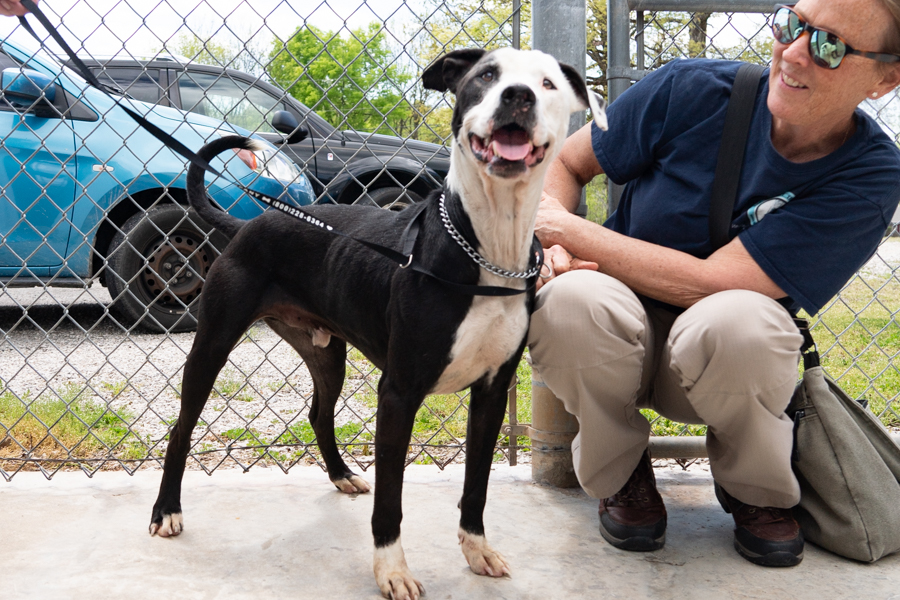
|
Further Reading
|
|
Housing policies may be becoming more pet inclusive, but housing insecurity is getting worse, finds a new study that examined the housing issues that led to owners turning their pets over to an animal shelter. Read More.
|
|
|
|
|
|
CALL TO ACTION:
Help Us Connect With Animal Rescues!
|
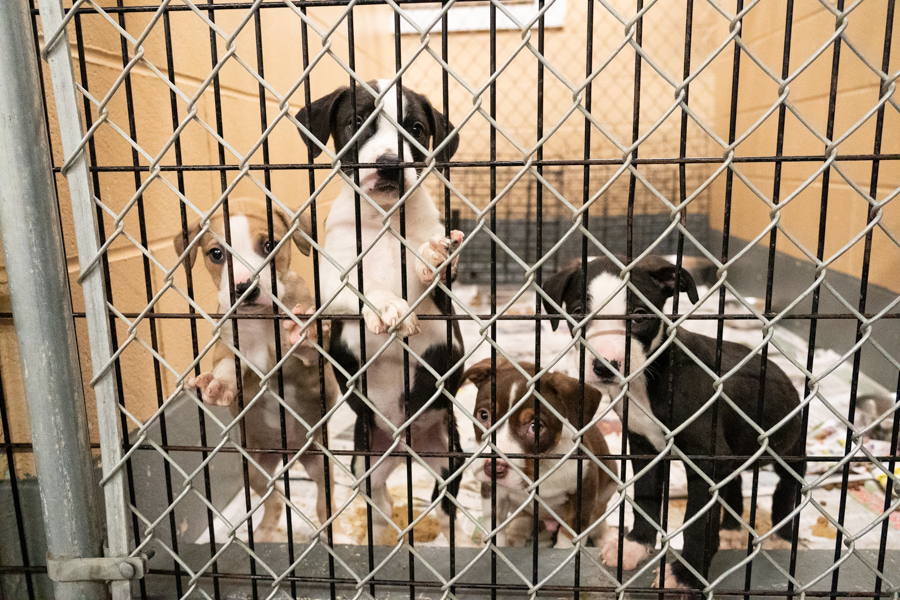
|
|
|
Do you know any Animal Rescue or "Friends Of" organizations? The shelters we work with are frequently searching to connect with Animal Rescues across the country to aid in their mission of getting dogs out of shelters and into their forever homes. We are currently working on a project to expand our network of connections with Animal Rescue organizations, and we need your help!
|
What's the difference between an Animal Shelter and a Rescue? Although in everyday conversation the two are often used interchangeably, they operate differently and often in tandem with one another. FuRR Feline Rescue sums it up well: "Shelters are typically funded at the town, city, or state level. People may refer to them as animal control or the pound. Workers at the shelter may be paid... Most rescue organizations in the United States are non-profit 501(c)(3) and run by private individuals or by a small group. Most rescues do not have over-populated facilities and can care for each animal personally." Frequently, animals in rescues start out in public shelters, and shelters love to connect to rescues in order to get help with connecting to adopters, especially for dogs that may need more care or attention. Learn more here.
|
|
If you have a connection to, or even knowledge of, Animal Rescues in your locality, please get in touch so that we may connect with them. The more we can connect our shelter partners with resources to lighten their load, the more lives we can save!
|
|
|
|
|
|
|
|
|
|
|